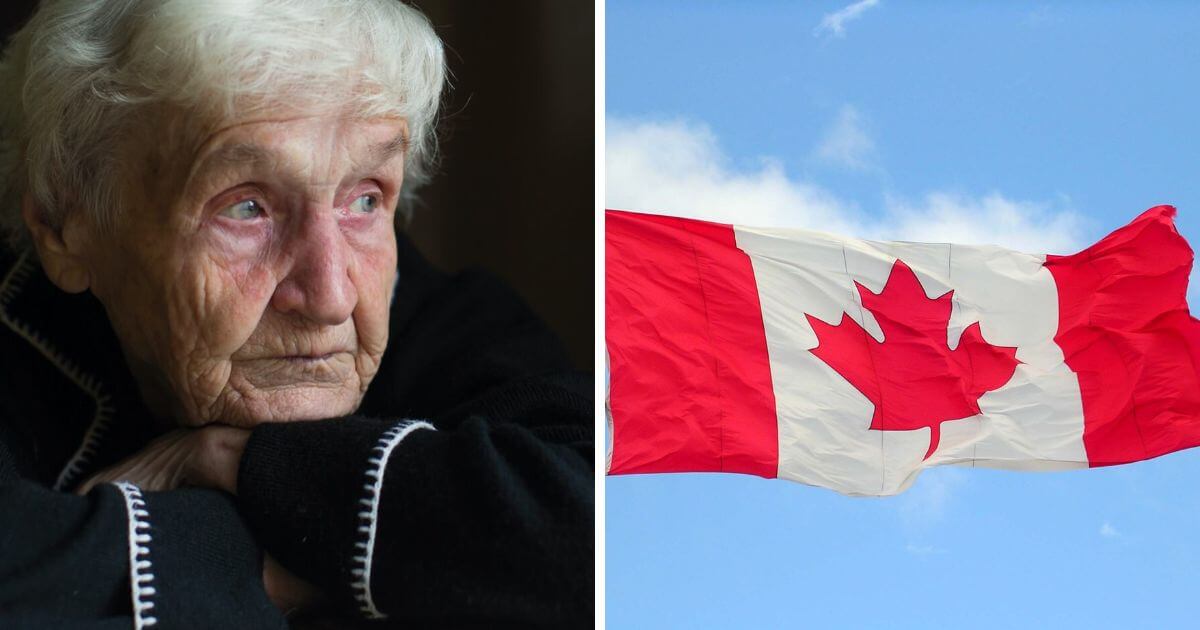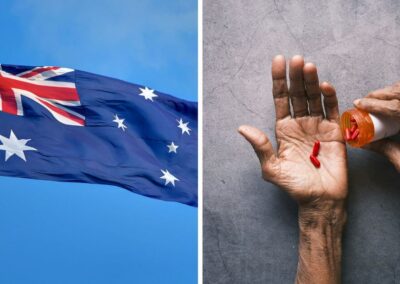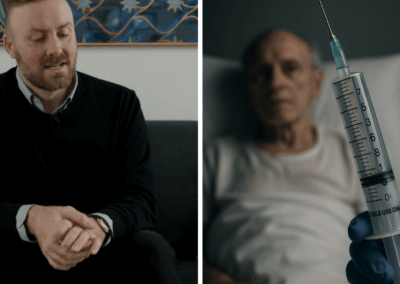Members of a group that fought for the legalisation of assisted suicide and euthanasia in Canada have raised fears that the practice is now being “abused” and is “too easy for that to become coercive”.
The Telegraph reported that some employees of the British Columbia Civil Liberties Association (BCCLA), which was at the forefront of efforts to make euthanasia and assisted suicide legal in Canada in 2016, have said the euthanasia and assisted suicide scheme is “being abused”.
In one video call between BCCLA staff and a Canadian disabled patients’ group seen by The Telegraph, one employee said “we are seeing MAiD being abused”, whilst another said they felt “very uncomfortable” about the BCCLA’s previous assisted suicide campaigning.
The same call revealed that a patient was approved for assisted suicide because they had hearing loss and that some Canadian medical colleges were advising against referring to euthanasia and assisted suicide on death certificates, meaning the actual reported numbers of deaths from euthanasia and assisted suicide could be unreliable. In a separate voicemail message, another employee talked about creating a new policy that “distances the BCCLA from its past work”.
“It’s far too easy for that to become coercive”
Since euthanasia and assisted suicide were legalised in 2016, numerous worrying accounts have emerged of patients being offered MAiD during routine medical appointments or surgery. Retired corporal, Christine Gauthier, who competed in the 2016 Rio de Janeiro Paralympics, testified before a Canadian House of Commons Veterans Affairs Committee at the beginning of December 2022 that an unnamed veterans affairs case worker had said, in writing, that Ms Gauthier could be provided with a euthanasia device when all she had wanted was a stairlift to be installed in her home.
And, as recently as last month, a woman in Canada was offered the choice of euthanasia or assisted suicide multiple times, including once as she was about to undergo life-saving surgery for breast cancer – a situation that medical professionals have said is not uncommon.
One BCCLA employee, commenting on offers of MAiD, said that medics should not do so since “it’s far too easy for that to become coercive”.
The BCCLA comments come soon after the first official report on euthanasia and assisted suicide in Ontario, Canada: the ‘MAiD Death Review Committee Report’, in which 16 experts from various disciplines reviewed MAiD deaths in Ontario, found that vulnerable people face “undue influence” and “potential coercion”.
The report said “members identified that introducing MAiD to patients, particularly when they are not approaching their natural death, raises concerns of the impact on voluntariness, given the power imbalance in a healthcare provider and patient relationship (e.g., framed in terms of potential coercion or undue influence)”.
Warnings for the UK from Canada
In 2021, the Canadian Parliament repealed the requirement that the natural death of those applying for euthanasia or assisted suicide be “reasonably foreseeable”. This took place only five years after the original legislation allowing euthanasia and assisted suicide was passed in 2016. Legislation was introduced in February 2024 so that euthanasia and assisted suicide would become legal on the grounds of mental health alone in March 2027.
Trudo Lemmens, professor of law at the University of Toronto, who initially supported Canada’s assisted suicide and euthanasia law, said “One of the most worrying aspects of the Canadian experiment is it shows that once you start legalising, there is a risk that a significant number of physicians normalise this practice”.
“Once it’s implemented, there will be advocacy groups pushing for further expansion, and I see that already in the English debate” Lemmens added. A leading UK campaign group and a number of high-profile individuals are not satisfied with the expected scope and are vocal about their wish to see the scope of Kim Leadbeater’s Terminally Ill Adults (End of Life) Bill widened.
On the same day that Leadbeater tabled her Bill, Humanists UK said that anyone “incurably suffering” should be able to access assistance in suicide.
At the same time, retired judge Sir Nicholas Mostyn, a long-time friend and podcast cohost of assisted suicide campaigner Lord Falconer, lamented the fact that Leadbeater’s Bill would not, in its current expected form, apply to people who were not terminally ill. Sir Nicholas, who has Parkinson’s disease and runs a podcast, Movers and Shakers, about the condition, said “There is a cohort of people like us who it is not going to help and we are left with the existing, most unsatisfactory law”.
“Parkies will never get a terminal diagnosis, so this bill is no f***ing use to us at all”.
The British Columbia Civil Liberties Association has received criticism for its stance. An Assistant Professor of International Relations and International Law at Leiden University, Yuan Yi Zhu, pointed out that “The British Columbia Civil Liberties Association, a key actor in making euthanasia legal in Canada, is having regrets. But fine words butter no parsnips. The only way of stopping the slippery slope of death is to not get on it”.
Spokesperson for Right To Life UK, Catherine Robinson, said “The BCCLA comments reported by The Telegraph about Canada’s disastrous assisted suicide programme should act as a wake up call to MPs who are undecided about the Leadbeater Bill”.
“Abuses and expansion of the law have become commonplace in Canada and there is no reason to believe that the same would not likely happen here if assisted suicide is legalised. When one of the campaign groups responsible for legalising assisted suicide and euthanasia thinks the practice has gone too far, so much so they are looking at changing policies to distance themselves from this work, we know this is a path we must not tread”.












